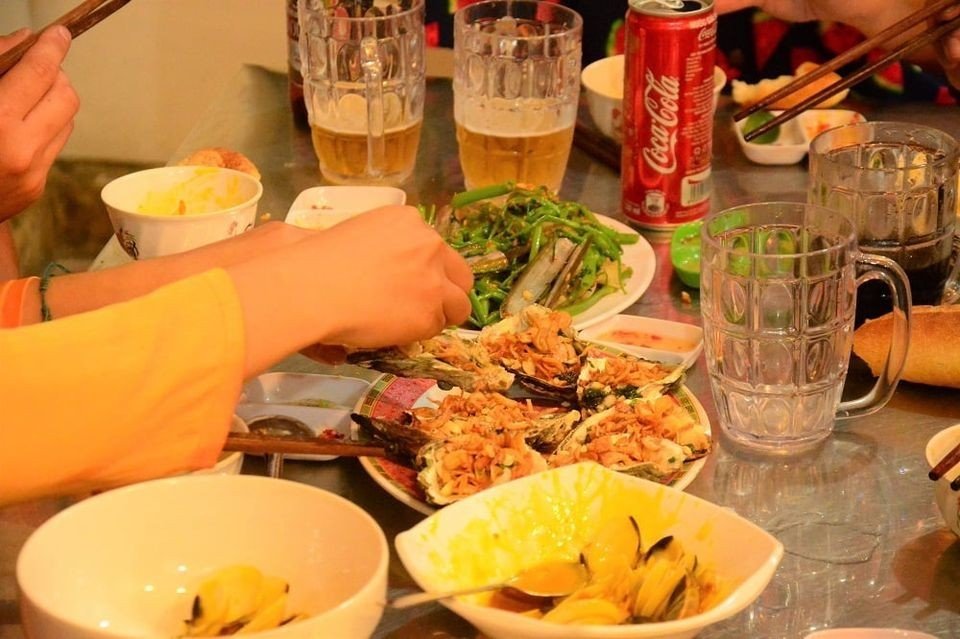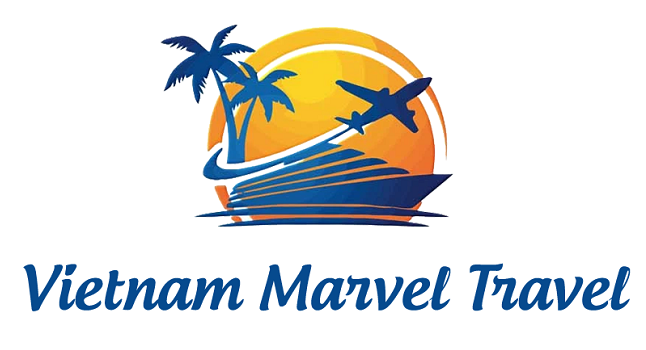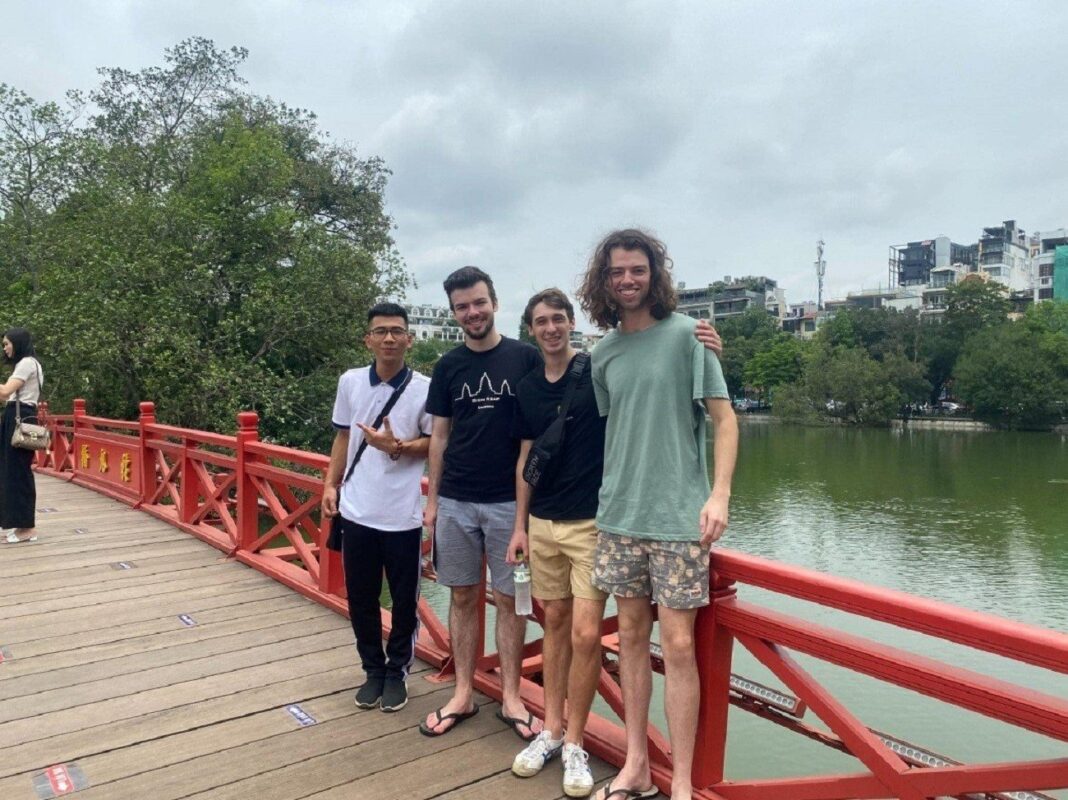Is Hanoi Worth Visiting in 2025-2026? 21 Compelling Reasons to Say YES
Considering Vietnam for your next travel adventure? Discover why Hanoi should top your 2025-2026 itinerary with our comprehensive guide to Vietnam’s captivating capital—from ancient temples to evolving culinary scenes, revitalized infrastructure, and sustainable tourism initiatives.
The Timeless Appeal of Vietnam’s Capital in 2025
Hanoi, a city where ancient traditions seamlessly blend with modern development, continues to captivate travelers in 2025-2026. As Vietnam strengthens its position as Southeast Asia’s must-visit destination, the capital city stands as a testament to the country’s rich heritage and forward-thinking vision. Unlike other rapidly modernizing Asian capitals, Hanoi has managed to preserve its soul while embracing progress.
The question “Is Hanoi worth visiting in 2025-2026?” deserves a thorough exploration, especially as the city undergoes significant transformations designed to enhance visitor experiences while honoring its thousand-year history.
Cultural Immersion: Hanoi’s Historical Treasures
The Old Quarter’s Evolving Charm
The Ancient Quarter of Hanoi, with its maze of 36 guild streets, remains the city’s cultural epicenter in 2025. Recent preservation efforts have enhanced the area while maintaining its authentic character. The quarter now features:
- Heritage-protected shophouses spanning 87 hectares
- Expanded pedestrian zones now covering 16 streets (up from 7 in 2023)
- New cultural performance venues showcasing traditional Vietnamese arts every evening
- Interactive historical markers with QR codes linking to detailed histories in 12 languages
Walking through these narrow streets reveals centuries of commerce and craft traditions. Each street name still reflects the goods traditionally sold there—Hang Bac (Silver Street), Hang Gai (Silk Street), and Hang Tre (Bamboo Street). The 2025 Old Quarter Enhancement Project has improved sidewalk conditions while preserving the chaotic energy that makes this area uniquely Hanoi.

UNESCO Heritage Sites and Cultural Landmarks
Hanoi proudly showcases several UNESCO-recognized treasures that have been further enhanced for visitors in 2025:
- The Imperial Citadel of Thang Long (UNESCO World Heritage Site since 2010) now features a new archaeological museum displaying recently excavated artifacts dating back to the 7th century
- The Temple of Literature (Vietnam’s first university, established in 1070) has implemented an advanced audio guide system available in 15 languages
- Hoan Kiem Lake and Ngoc Son Temple have undergone ecological restoration, improving water quality by 65% since 2023
These sites aren’t merely tourist attractions but living connections to Vietnam’s storied past. The Temple of Literature, covering 54,000 square meters, houses 82 stone stelae documenting the names of successful doctoral candidates from 1442 to 1779—making it one of Asia’s most important educational heritage sites.
Exploring these landmarks offers insights into Vietnam’s Confucian heritage and imperial history that cannot be experienced anywhere else in Southeast Asia. In 2025, new nighttime illumination programs have made evening visits particularly magical.
Gastronomic Delights: Hanoi’s Evolving Food Scene
Street Food Culture and Culinary Recognition
Hanoi’s food scene has gained international recognition with the 2024 launch of Vietnam’s first Michelin Guide, which awarded stars and Bib Gourmand distinctions to several Hanoi establishments. In 2025-2026, the city’s culinary landscape offers:
- 17 Bib Gourmand establishments recognized for exceptional value
- 3 Michelin-starred restaurants elevating Vietnamese cuisine to new heights
- 42 officially designated street food zones with improved hygiene standards
The street food scene remains Hanoi’s culinary soul. Signature dishes like phở bò (beef noodle soup), bún chả (grilled pork with rice noodles), and bánh mì (Vietnamese sandwich) can be enjoyed for just $1.50-$4.00 USD, making Hanoi a paradise for food lovers on any budget.
Don’t miss Bun Cha Huong Lien (made famous by Anthony Bourdain and President Obama’s visit), which now offers cooking classes where visitors can learn to prepare this iconic dish themselves. The restaurant serves approximately 500 portions of bún chả daily, using a family recipe unchanged for three generations.
Cooking Classes and Food Tours
For travelers seeking deeper culinary connections, Hanoi in 2025 offers enhanced food experiences:
- Market-to-table cooking classes where you shop at local markets before preparing traditional dishes
- Specialized dietary tours catering to vegetarian, vegan, and gluten-free travelers
- Coffee culture explorations showcasing Vietnam’s unique egg coffee and other specialties
The new Hanoi Food Culture Center near the Old Quarter offers daily demonstrations of traditional cooking techniques and food history exhibitions. Their “Century of Pho” exhibit traces the evolution of Vietnam’s most famous dish from its origins in the early 1900s to its global popularity today.
These immersive food experiences provide context for understanding Vietnamese culture through its cuisine. As food writer Calvin Trillin once noted, “The truest way to understand a culture is through its food”—nowhere is this more evident than in Hanoi.
For those planning a longer exploration of Vietnam’s culinary landscape, consider adding a comprehensive 8-day tour through Vietnam’s diverse regions, where you can compare northern, central, and southern cooking styles.
Affordability: Value for Money in 2025-2026
Accommodation Options for Every Budget
Hanoi continues to offer exceptional value compared to other Asian capitals in 2025-2026:
- Budget hostels: $8-15 USD per night with modern amenities and social spaces
- Mid-range hotels: $30-70 USD for comfortable, centrally located accommodations
- Luxury experiences: $120-250 USD for 5-star properties with world-class service
The hotel landscape has evolved significantly with the 2024 opening of several international brands alongside boutique properties that showcase Vietnamese design and hospitality. The French Quarter now houses 12 heritage hotels in restored colonial buildings, offering authentic experiences with modern comforts.
Notable new additions include the Capella Hanoi (designed by Bill Bensley) and the eco-conscious Ecolife Westlake, which operates on 100% renewable energy—the first carbon-neutral hotel in the city.
Daily Expenses and Tourism Value
A typical day in Hanoi in 2025-2026 costs significantly less than in most global capitals:
- Average daily budget (mid-range): $45-70 USD including accommodation, meals, and activities
- Museum and attraction entrance fees: $2-8 USD per site
- Transportation: $0.30 USD for bus rides, $3-5 USD for most taxi journeys across the city
- Street food meals: $1.50-4 USD per person
- Mid-range restaurant dining: $7-15 USD per person
The Hanoi Tourist Card introduced in 2024 offers additional value with unlimited public transportation and discounted entry to 22 attractions for $25 USD (3-day validity). This initiative has reduced tourist spending by approximately 35% while increasing attraction visitation.
Improved Infrastructure: Enhanced Visitor Experience
Transportation Advancements
Getting around Hanoi has become significantly easier in 2025 with:
- Expanded metro system: Line 2A now fully operational with 12 stations connecting major districts
- Electric bus fleet: 60% of public buses now electric, reducing pollution and noise
- Enhanced taxi services: All official taxis equipped with transparent fare meters and payment systems
- New rideshare options: Local apps like Be and Grab offering English interfaces and cashless payment
The Noi Bai International Airport has completed its Terminal 2 expansion, increasing capacity to 30 million passengers annually. The new express train connects the airport to the city center in just 30 minutes—a vast improvement over the previous hour-long journey.
Digital Connectivity for Travelers
Hanoi has embraced digital solutions to enhance tourist experiences:
- City-wide free WiFi: 650+ hotspots covering all major tourist areas
- Digital payment acceptance: Over 90% of businesses now accept international cards and mobile payments
- Multilingual assistance apps: The official “Hanoi Tourism” app provides real-time translation, emergency services, and attraction information in 8 languages
The Smart Tourism Information Centers established throughout the city offer self-service kiosks where visitors can print maps, book tours, and access 24/7 video assistance from tourism professionals.
Gateway to Northern Vietnam’s Natural Wonders
Day Trips and Nearby Attractions
Hanoi serves as the perfect base for exploring Northern Vietnam’s breathtaking landscapes:
- Ha Long Bay: UNESCO World Heritage Site featuring 1,969 limestone karsts spread across 1,553 square kilometers of emerald waters, accessible via new expressway in 2 hours
- Ninh Binh: “Halong Bay on Land” with karst mountains and winding rivers, just 100km (62mi) south of Hanoi
- Mai Chau: Picturesque valley with Thai ethnic minority villages, 135km (84mi) west of the capital
- Perfume Pagoda: Ancient Buddhist temple complex accessible by boat, 60km (37mi) from Hanoi
For travelers seeking the full northern Vietnam experience, a dedicated 6-day Northern Vietnam itinerary offers the perfect balance of urban exploration and natural wonders.
Seamless Travel Connections
Hanoi’s position as Northern Vietnam’s transport hub has strengthened in 2025 with:
- New high-speed train service to Lao Cai (for Sapa) reducing travel time to 3.5 hours
- Direct international flights to 89 destinations (up from 61 in 2023)
- Luxury cruise transfers to Halong Bay with WiFi-equipped coaches and refreshment service
- Enhanced domestic flight network connecting to 19 Vietnamese cities
These improvements make multi-destination Vietnam itineraries more accessible than ever. The new Vietnam Tourist Pass allows unlimited domestic train travel for 7/14/21 days (priced at $99/179/249 USD respectively), creating excellent value for explorers.
Climate Considerations: When to Visit in 2025-2026
Seasonal Highlights and Weather Patterns
Hanoi experiences four distinct seasons, each offering unique experiences:
- Autumn (September-November): The golden season with temperatures of 20-25°C (68-77°F), low humidity, and abundant sunshine. Perfect for outdoor exploration and photography.
- Winter (December-February): Cooler temperatures of 15-20°C (59-68°F) with occasional drizzle. Ideal for hot food experiences and cultural immersion without crowds.
- Spring (March-May): Moderate temperatures of 18-28°C (64-82°F) with occasional rain showers. Cherry blossoms and seasonal festivals make this a culturally rich time to visit.
- Summer (June-August): Hot and humid with temperatures of 30-35°C (86-95°F) and frequent afternoon thunderstorms. Lower tourist numbers mean better deals on accommodation.
The optimal visiting windows in 2025-2026 are October-November and March-April when weather conditions are most favorable. These periods coincide with cultural festivals while avoiding the peak domestic tourism season around Tet (Vietnamese New Year).
Climate Adaptation and Comfort
Hanoi has implemented several measures to enhance visitor comfort regardless of season:
- Misting systems in public squares and tourist areas during summer months
- Covered walkways connecting major attractions in the Old Quarter
- Climate-controlled museums and indoor attractions for extreme weather days
- Real-time weather alerts through the tourism app
These adaptations ensure comfortable experiences year-round, though travelers should still pack accordingly for Hanoi’s sometimes unpredictable weather patterns.
Cultural Festivals and Events Calendar 2025-2026
Traditional Celebrations
Timing your visit around Hanoi’s vibrant festivals adds another dimension to your experience:
- Tet Festival (Vietnamese New Year): February 7-14, 2025 – The city transforms with floral displays, traditional performances, and family celebrations
- Mid-Autumn Festival: September 15, 2025 – Colorful lanterns illuminate the Old Quarter while mooncakes and traditional performances entertain visitors
- Co Loa Festival: Early February 2025 – Commemorates King An Duong Vuong at the ancient spiral citadel with historical reenactments
- Perfume Pagoda Festival: February-March 2025 – Religious pilgrimage combining boat journeys, mountain hiking, and Buddhist ceremonies
Each festival showcases different aspects of Vietnamese culture, from spiritual traditions to culinary specialties and performing arts.
Contemporary Cultural Events
Hanoi’s modern cultural calendar has expanded significantly for 2025-2026:
- Hanoi International Film Festival: October 2025 – Showcasing Asian cinema with outdoor screenings across the city
- Monsoon Music Festival: November 2025 – Vietnam’s largest international music festival held in the Imperial Citadel
- Hanoi Design Week: April 2025 – Celebrating Vietnamese contemporary design across fashion, architecture, and visual arts
- Vietnam Craft Beer Festival: May 2025 – Highlighting Vietnam’s booming craft brewery scene with 40+ domestic breweries
These events reflect Hanoi’s evolution as a cultural capital where traditions and contemporary creativity coexist harmoniously.
Sustainable Tourism Initiatives in Hanoi
Eco-Friendly Developments
Hanoi has embraced sustainability with several notable initiatives in 2025:
- Green Transportation Network: 200km of new bicycle lanes and 650 electric bus stops
- West Lake Ecological Restoration Project: Improved water quality and biodiversity around Hanoi’s largest lake
- Plastic Reduction Campaign: 85% of hotels have eliminated single-use plastics
- Urban Farming Initiatives: Rooftop gardens producing 12 tons of vegetables monthly in the city center
These efforts have earned Hanoi recognition in the Global Sustainable Tourism Council’s “Emerging Sustainable Destinations” list for 2025.
Community-Based Tourism
Responsible travel options in and around Hanoi have expanded to include:
- Craft Village Tours: Supporting traditional artisans in Bat Trang (ceramics), Van Phuc (silk), and Dong Ho (folk painting)
- Urban Farming Experiences: Participating in community garden projects while learning about Vietnamese agriculture
- Social Enterprise Restaurants: Dining establishments that train disadvantaged youth for careers in hospitality
These initiatives distribute tourism benefits more equitably while preserving cultural heritage. When seeking authentic experiences throughout Vietnam, consider exploring with Vietnam Marvel Travel, a company specializing in responsible tourism with deep connections to local communities.
Digital Nomad and Extended Stay Appeal
Remote Work Infrastructure
Hanoi has embraced the digital nomad trend with infrastructure improvements:
- Co-working spaces: 27 modern facilities throughout the city with flexible membership options
- Long-stay accommodation: Serviced apartments available from $400-800 USD monthly
- Digital nomad visa: Introduced in 2024, allowing stays of up to 12 months for remote workers
- High-speed internet: Average speeds of 85Mbps in cafés and accommodation
The digital nomad community has grown substantially, with dedicated Facebook groups and weekly networking events connecting international remote workers.
Language and Communication Ease
While Vietnamese remains the primary language, English proficiency has improved significantly in tourist areas:
- Tourism workers: Required English proficiency certification for front-line staff
- Bilingual signage: Implemented throughout public transportation and major attractions
- Translation services: Real-time translation available through the tourism app and at information centers
These improvements have made Hanoi more accessible for English speakers, though learning a few Vietnamese phrases is still appreciated by locals.
Safety and Security for 2025-2026 Travelers
Low Crime and Health Considerations
Hanoi maintains its reputation as one of Southeast Asia’s safest major cities:
- Crime rate: Violent crime against tourists remains extremely rare
- Health infrastructure: International-standard medical facilities with English-speaking staff
- Water quality: Improved but bottled water still recommended for visitors
- Air quality: Significant improvement following the 2024 Urban Air Quality Initiative
The main concerns remain petty theft in crowded areas and traffic safety. The dedicated Tourist Police units established in 2024 provide specialized assistance in English, Korean, and Chinese.
Practical Safety Tips
For a smooth Hanoi experience in 2025-2026:
- Traffic navigation: Use the central pedestrian signal system and designated crossings
- Valuable protection: Utilize hotel safes and anti-theft bags in crowded areas
- Weather preparation: Pack accordingly for seasonal variations and sudden rain showers
- Emergency contacts: Save the tourist emergency hotline (1800-1191) and download the Hanoi Tourism app
Following these simple precautions ensures a worry-free experience in a city that consistently ranks among Asia’s safest urban destinations.
Photography Opportunities: Hanoi Through Your Lens
Iconic Photography Locations
Hanoi offers endless visual inspiration for photographers:
- Train Street: The famous narrow residential street with active railway tracks (now with regulated visitor hours)
- Long Bien Bridge: The historic iron bridge designed by Gustave Eiffel spanning the Red River
- Early Morning Hoan Kiem Lake: Locals practicing tai chi as mist rises from the water
- Rooftop Cafés: Panoramic city views showcasing the blend of colonial and modern architecture
These locations provide striking visual contrasts between traditional and contemporary Vietnamese life.
Photography Tours and Classes
For those looking to improve their travel photography:
- Hanoi Photo Walks: Guided tours through photogenic neighborhoods with professional photographers
- Golden Hour Sessions: Specialized tours timed for optimal morning or evening light
- Portrait Photography Workshops: Connect with local subjects while learning cultural context
These experiences go beyond tourist snapshots to capture authentic moments and meaningful connections.
Authentic Local Interactions
Beyond Tourist Bubbles
Meaningful cultural exchanges in Hanoi might include:
- Home-cooking classes: Learn family recipes in local homes rather than commercial kitchens
- Morning exercise groups: Join locals for tai chi or aerobics at public parks (6-7am daily)
- Traditional craft workshops: Create personalized souvenirs while supporting artisan traditions
- Language exchange meetups: Weekly gatherings where travelers and locals practice language skills
These experiences foster genuine connections while supporting local communities directly.
Respect for Local Customs
Understanding Vietnamese cultural norms enhances your experience:
- Temple etiquette: Modest dress required (covered shoulders and knees), shoes removed before entering
- Greeting customs: Slight bow or handshake, address older people with respect titles
- Dining traditions: Communal eating style, small gestures like topping up others’ tea
- Photography sensitivity: Always ask permission before photographing individuals
Respecting these customs demonstrates cultural awareness that locals deeply appreciate.
Conclusion: Is Hanoi Worth Visiting in 2025-2026?
After examining Hanoi’s cultural riches, culinary excellence, affordability, infrastructure improvements, and gateway potential, the answer is a resounding YES. Hanoi in 2025-2026 offers a remarkable balance of authentic heritage and forward-looking development that few Asian capitals achieve.
The city provides exceptional value while delivering unforgettable experiences—from sipping egg coffee in century-old cafés to navigating ancient alleyways where traditional crafts still thrive. Its position as the gateway to northern Vietnam’s natural wonders further enhances its appeal as a destination worthy of any travel itinerary.
Whether you’re drawn by the food, history, affordability, or simply the atmospheric charm that permeates its ancient streets, Hanoi rewards visitors with authentic experiences that define the essence of Vietnam. In 2025-2026, as Vietnam continues its thoughtful tourism development, Hanoi stands ready to welcome travelers seeking substance, soul, and stories worth sharing.
For those convinced of Hanoi’s appeal, consider extending your Vietnamese adventure with a comprehensive exploration of the country’s diverse regions, from the mountainous north to the tropical south—each offering distinct cultural and natural experiences that complement your time in the captivating capital.
Contact Information
Website: vietnammarveltravel.com
Email: vietnammarveltravel@gmail.com
Phone: +84.978.358.422
WhatsApp: +84 978.358.422
Vietnam Marvel Travel – Your Gateway to Authentic Vietnam Experiences
Read Our Reviews: Check out genuine traveler experiences and ratings on Vietnam Marvel Travel Review on TripAdvisor to see why we’re the preferred choice for Vietnam adventures.

